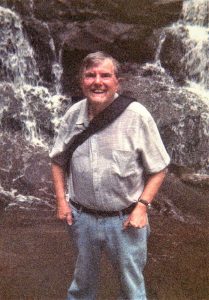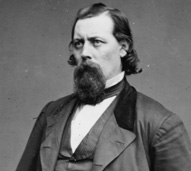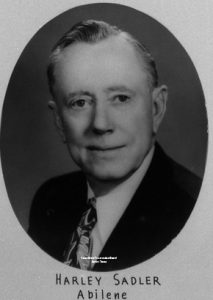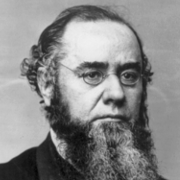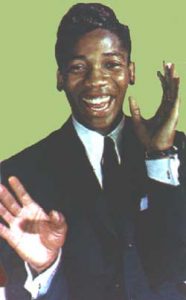
Hal Neely produced many Little Willie John records
Previously in the book: Nebraskan Hal Neely began his career touring with big bands and worked his way into the King records, producing rock and country songs. Along the way he worked with James Brown, the Godfather of soul.
James Brown always said Syd Nathan was like a stern father; Hal Neely, a kindly uncle, Little Willie John, a brother: and Ben Bart, a pop—maybe that was a father who didn’t yell at him. By the end of 1968 the only one of these surrogate family members Brown had left was Hal Neely.
The exhilaration from that success of “Live at the Apollo” did not last long and failed to heal Brown’s frustrations with King Records, even though his main connection to King evolved to be with Hal Neely instead of with Syd Nathan, who had suffered two heart attacks in recent years. Nathan was splitting his time between Cincinnati and his condominium in Miami, Florida, supposedly leaving the day-to-day running of the company to Neely. Ultimately, however, Nathan still had the final veto.1
Brown complained in his autobiography that when he asked for an advance against royalties Nathan would grant it only if Brown agreed to an extension on his contract. “And I was tired of fighting Mr. Nathan all of the time. I loved him like a father, but I was tired of fighting it. Mr. Nathan had been sick for a while, but when he got himself back he would be running the company full-time again. His ideas about artist development and promotion were old-fashioned, not like Mr. Neely’s.
“Hal Neely, who later became president of King, he was like my father. Hal Neely is one of the finest persons I’ve ever met,” Brown said in an interview in the late 1980s. “During that time it was like I became part of the family, it was a whole different set-up then. If you had a problem you could call the company president at 5 o’clock in the morning, tell him what it is, he would be concerned. He’d be on the next plane down there. That’s what it’s about. Personal feeling, personal touch, personal involvement. There isn’t much of that now.”2
But Nathan still was a problem for Brown in the early 1960s. “Around this time there was a chance Mr. Neely would buy him out, but when it didn’t come through I was ready to go,” he said in his autobiography.
The incident that forced Brown to assert himself came during his last studio session under the old King contract in late October of 1963 with the recording of “Oh Baby Don’t You Weep.” King producer/arranger Gene Redd lectured him that his piano playing was “musically incorrect” which sparked Brown’s retort, “Does it sound good to me? Then it’s not incorrect.” After a few more angry words Redd stormed from the booth to Nathan’s office where he demanded the boss order Brown to do it his way. In a rare exhibit of respect for his musical artists, Nathan told Redd to do it Brown’s way.3
Neely could see the conflict coming. “James had just had enough of Syd. Syd at the time was growing more ill, with the heart attack and all. He still came into work but what little patience he ever had was gone. Syd spent half the year at a condo in Miami but when he would come back into town, all hell would break loose. It just came to the point where there was simply no reasoning between the two.”4
“James used to cause us a lot of problems, though,” Jim Wilson, who had left King to join Neely at Starday, said, “and the problems were that he wanted to call the shots in releasing product. Now I can understand that; he would get all excited about something new. An idea came to him, and he was still young: ‘Let’s cut it! Let’s put it out.’ And I appreciated that from an artist.” Wilson explained that from a company’s manufacturing standpoint, distribution could handle only one hit at a time. “James’s theory probably was, ‘Well, look, if I’ve got five hits on the go, they’ll play all five of them.’” Wilson said it did not work that way. Disc jockeys would quit playing one song even if it were only two or three weeks on the market in order to start playing the new record.5
Wilson also laid blame on Nathan for his failure to spot the surge of the sound of young America. “I think that to some extent, we were dragging our feet at King in moving forward into the Motown-type sound,” he said. Wilson had a special perspective on this change of musical styles since he was in charge of King’s Detroit office, giving him a front row seat to watch the development of Motown from a little fly on the wall to a giant in the industry, leaving King far behind.6
By 1964 Hal Neely must have looked back over his years working for Syd Nathan with a lot of satisfaction but also frustration. For every instance Neely could influence Nathan to make the right decision on a record, such as with “Please, Please, Please” he had to put up with the boss’s attitude of “my way or no way.” One of his unofficial duties was damage control over the addiction problems of King musicians.
“James Brown, bless his heart, he’s been into heavy drugs all his life,” Neely said. Neely went on to say Little Willie John had problems with drinking, marijuana smoking, cocaine and harder drugs and that he had entered John into rehabilitation centers several times.7
Not only did Neely have to run interference between Nathan and Brown he also had to attempt to shield John from Nathan’s outbursts. John was completely different from James Brown. He tried to mold himself in the image of Frank Sinatra, wearing silk shirts and cocking his hat to one side. Ray Pennington, who worked at King Records in 1958, remembered how Nathan would yell at John during recording sessions.
“Mr. Nathan would be trying to tell Willie how to sing. He always jumped on Willie and told him he wanted to be Sinatra. Mr. Nathan would tell him he wasn’t singing ‘black’ enough, only that wasn’t the word he would use. They would always end up all right, but we were usually glad when Mr. Nathan left the room because then we could do it the way we wanted.”8
Neely also was in charge of developing tough business tactics with the sometimes less-than-dependable artists; for example, whenever a musician needed some money he could count on getting it from Nathan. The catch was that the loan would extend the length of the artist’s contract. Neely said he brought a new twist to this “hustle” by adding a condition that the musician was required to give King Records three days of recording time every 90 days no matter where they were at the time. If he did not comply with the company’s request, he would have another year added to his contract. “It’s a hustle contract, that’s true,” Neely said, “but you’re going to be hustled if you don’t.”
John, apparently not realizing that each advance he requested ended up extending his contract, seemed to think he needed a valid reason to ask for the money, so he invented regular deaths in the family. “Willie John’s mother died three times,” Neely said. “I sent it to him. It was his money. Fantastical singer. Of course, our best singer was Willie John. I’m the guy who got him, of course.”9
However, through those years, Neely’s allegiance stayed with the boss Syd Nathan. For example, in the summer of 1960 John wanted to record a Fred Waring song “Sleep” from 1924.
“He was coming off three or four big records, and he said, ‘Hal, I’ve been thinking. I’d like to use the Cincinnati Symphony on my next record.’ I said to him, ‘Gee that’s a great idea, fine, Willie.” Neely said he picked up the phone and asked to be put through to the director of the symphony. “I said, ‘Little Willie John’s in my office, and he’d like to do a recording tonight, are you available?’” Neely told John that the symphony was ready for him. “So Willie marches out of my office and Syd’s, he goes to the studio. He’s gone about an hour. He comes back, with his hat in his hand now. ‘How many men in the Cincinnati Symphony? Mr. Neely, who pays for that?’ ‘Well, you do Willie.’ ‘You know, I think I’ve been a little hasty.’”
Neely was not completely heartless in dashing John’s idea. He did book three violins and a viola and overdubbed them. “So we did ‘Sleep’, and that’s the worst record I ever cut in my life, it’s screechy and it’s bad and they put him on it, they sketched out an arrangement and we overdubbed it about three times, so it sounds like a fiddle section. It’s awful, it’s terrible. It went to number one, of course.” Neely had a penchant for overstatement. The record went to No. 10 on the rhythm and blues chart and No. 13 on the pop charts, but it was John’s best-selling record ever.10
John’s addiction problems escalated in the spring of 1964 when he was arrested in Fort Meyers, Florida. A drunk in the audience threw a bottle at John on stage. John picked up jagged bottle which had broken and threw it back into the nightclub audience. Later that April John attacked a chef because he didn’t like the way his dinner was cooked. He jumped bail and left Florida, thinking he would never return. Even the newspapers commented on his behavior.
“Little Willie John is headed for serious financial difficulties if he continues to miss contracted dates, his agent is being forced to return deposits,” Izzy Rowe said in his syndicated column.11
His erratic behavior climaxed the next October at a shady establishment called the South End Improvement Club in Seattle. John had too much booze, too many women, and too little sense when he asked a man named Kendall Roundtree, six-foot two and weighing more than 200 pounds, to join his party. The group decided to wind up the evening at an illegal party house in the worst section of town. Liquor sales were illegal on a Sunday in Seattle but hooch still flowed in the little frame house which had been converted into a speakeasy.
Roundtree had too much to drink like everyone else in the joint and started calling the women “bitches,” which set John off. Even though he was only five-foot four and weighed about 130 pounds, he saw himself as the protector of the honor of all women. The room was crowded when the fight broke out, and when it ended a few minutes later everyone saw Roundtree bleeding from the chest and John with a steak knife in his hand.12
“When it was all over, about 10 minutes, I got myself together and in the living room there was a dead man,” John later said. “Well, I called for an ambulance and they called the police. I don’t use God’s name in vain, but I didn’t do this.”
John was booked on suspicion of murder. Roundtree’s autopsy showed that the knife entered near the collarbone after a downward thrust, cutting through his lung and nicked his aorta. Eventually John was charged with second-degree murder and after a plea of not guilty was released on a $10,000 bond. Hal Neely claimed to have bailed him out but so did Sam Cooke, James Brown, John’s brother Mertis Junior and his manager Clem Williams. He left the Seattle jail in the morning and by that night he was performing at a San Francisco nightclub. John saw his old friend from Detroit Hank Ballard in the club and shared his plans: after his San Francisco gig he was going to the 54 Ballroom in Los Angeles even though legally he was still supposed to be in Washington state. Ballard may have been John’s friend, but he was also on Neely’s payroll at King Records. He wasted no time in calling his boss to let him know what John was up to.
“Hank called me because they respected me, I think, because I’m honest,” Neely said. “He said, ‘Mr. Neely, I think you’d better know now, Willie John is playing the 54 Ballroom this weekend.’” Neely added that a bail bondsman picked up John after his Los Angeles engagement and took him back to Seattle.13
Shortly thereafter the court allowed John to go home to his family for Christmas. The trial took place in January of 1965 and ended with a verdict of manslaughter with a weapon, which surprised the prosecuting attorney Art Swanson. “Kendall Roundtree was a mountain of a man and could have squashed Willie. Big guy hits the little guy, there’s a fight. Self-defense could have given them a wonderful chance at a not-guilty verdict. How could you convict a guy when you have seven eyewitnesses, but none of them saw the guy do it?”14
John posted a $20,000 bond while awaiting sentencing. Unfortunately, the publicity from his Washington state trial came to the attention to Texas authorities who were looking for him on a bad check charge. He was indicted later that month on the Texas charge but was not brought back to jail in Washington until late August where he stayed until January 1966. He was granted parole the following month which allowed him to fulfill a new contract he had signed with Capitol Records in Los Angeles.15
According to a Jet Magazine interview given by his sister Mabel in May, 1965, John was “free to travel anywhere so long as he reports beforehand to the probation department.”16
John told Capitol Records that his contract with King was expired. The new label gave him a $10,000 advance. Capitol producer David Axelrod was very pleased with John’s recording session. “That album came out terrific. I really think it would have sold,” Axelrod said.
What John and Capitol Records did not realize was that King still held the contract. All those loans so generously made by Neely had come home to roost. Syd Nathan ordered his attorneys to stop the Capitol deal. Already concerned about how well an album by a soon-to-be convict would sell, the Los Angeles record magnate buried the eleven master tapes in its vaults.17
John returned to the Washington state corrections system in May of 1966 to begin serving a sentence of 8 to 20 years with a minimum of 7 1/2 years on the manslaughter conviction. During that time he served in the Washington State Penitentiary in Walla Walla he exchanged letters with Hal Neely, James Brown and Syd Nathan.18
Footnotes
1 The One, 132.
2 The James Brown Reader: 50 Years of Writing about the Godfather of Soul. New York, Penguin Group, edited by Nelson George and Alan Leeds, books.google.com/books?isbn=1440637342.
3 The One, 130-131.
4 King of the Queen City, 169.
5 Jim Wilson interview.
6 Record Breakers, 140.
6 King of the Queen City, 169.
7 Fever, 120.
8 Ibid., 123.
9 Ibid., 124.
10 Ibid., 127-128.
11 Ibid., 148.
12 Ibid., 153.
13 Ibid., 155.
14 Ibid., 158.
15 Ibid., 162, 165.
16 Ibid., 162.
17 Ibid.,168.
18 Ibid., 172.

